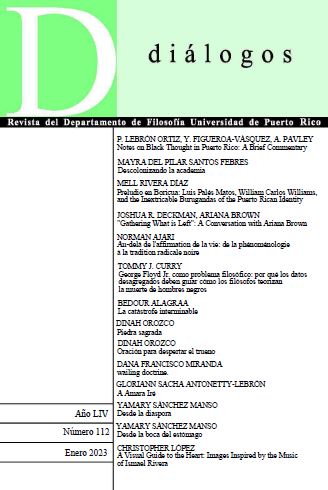Abstract
The trial of Derek Chauvin, the man who murdered Mr. George Floyd Jr on May 25, 2020, has become a national spectacle. For many Black Americans, it is merely another rehearsal of the injustice that befalls Black men in the United States when they are targeted by police violence. Mr. Floyd was murdered in broad daylight by Chauvin, yet it is Mr. Floyd’s character and temperament that is being depicted as threatening to Chauvin and the reason for his murder. Throughout the discipline of philosophy, the murder of Black men and boys is a topic most philosophy departments avoid and the American Philosophy Association neglects. This lecture argues that philosophy must abandon the martyrdom of the Black male body as the symbolic catalyst of racial change. Philosophy must not only accept that racism is a permanent feature of American society, but that this racism is misandric in that racist violence disproportionately targets Black males for death and dehumanization at levels not seen within other groups.

This work is licensed under a Creative Commons Attribution-NonCommercial 4.0 International License.

